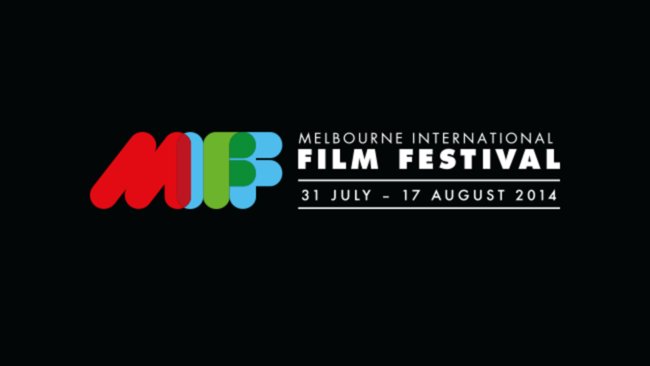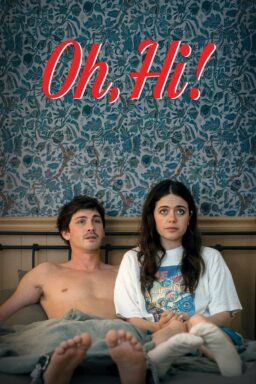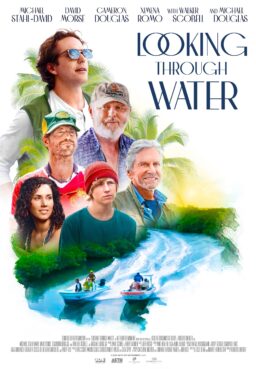This past Sunday,
the Southern hemisphere’s oldest and largest film festival came to a close for
another year. A staple of Australia’s cultural calendar for more than six
decades, the Melbourne International Film Festival has been the country’s
premiere cinematic event, showcasing some of the most noteworthy titles from
the global festival circuit, as well as providing a nationally recognized
platform for both emerging and established local talent.

Of the more than 300 films on the 18-day program, many of the most significant international
highlights came with a heaping of pre-MIFF buzz. Favorites from Sundance
included the Nick Cave pseudo-doc “20,000 Days on Earth” and Eskil Vogt’s playfully meta debut drama
“Blind.” After causing outrage in Sydney, the sexually confrontational Greek film
“Miss Violence” had its
fair share of walkouts and sparked many a heated argument on social media. It’s
never fun being the guy cheerleading for the rape and incest movie, but for the
record I thought it was one of the strongest films at the fest.
Another personal
favorite was Diao Yinan’s stunningly photographed murder mystery “Black
Coal, Thin Ice,” which won the Golden Bear at Berlin back in February. The
Cannes contingent, meanwhile, included Jean Luc Godard’s headache-inducing
experimental piece “Goodbye to Language,” Ruben Östlund’s brilliantly uncomfortable marital drama “Force
Majeure” and Xavier Dolan’s
emotionally bombastic melodrama “Mommy,” the final title being far
and away the best movie of the year so far. “Winter Sleep”, “Leviathan” and
“Wild Tales” all stood out as disappointing omissions from the
Riviera, although the former two apparently have local distribution deals in
place.
But perhaps more intriguing,
from an Australian perspective at least, are the films made right here in our
own backyard. The Australian film industry is an interesting beast, one frequently
at the mercy of a fickle local audience that seems unwilling to give the home-grown
product a chance. 2013 was widely reported as being a dismal year for Australian
films at the box-office, despite the release of several legitimately excellent titles
including Ivan Sen’s contemporary outback western “Mystery Road” and
Mark Hartley’s reimagining of the classic Ozploitation movie “Patrick“.
2014 has already
seen several great Australian productions come and go without nearly the
attention they deserve. Sophie Hyde’s “52 Tuesdays,” a raw and compelling look at a year in
the life of a teenage girl while her mother undergoes a gender transition, was
acclaimed by critics but made less than AU$150,000. Likewise, Jennifer Kent’s nerve-jangling
horror film “The Babadook,” which earned more money in France in just
five days than it did in a three month theatrical window back at home. Cannes
selected genre films “These Final Hours” and “The Rover”
whiffed with Aussie audiences as well, in spite of prominent publicity
campaigns by distributor Village Roadshow.
At MIFF, however,
local product has more success. Despite the lack of enthusiasm shown by the
public eleven-and-a-half months out of the year, programmer Al Cossar explains
that Australian films are amongst the most popular with MIFF attendees.
“Australian Showcase is always one of the most well attended and energized
strands within the festival,” says Cossar. “We certainly see the
festival as a lively and engaged place for Australian films to launch and to
first connect with audiences.”
Certainly, it was
enormously gratifying to see all three of this year’s MIFF marquee slots filled
by Australian films. Opening night saw the world premire of Michael and Peter
Spierig’s “Predestination,” a Melbourne-shot time travel thriller
starring Ethan Hawke. Tony Ayres’ crime thriller “Cut Snake” featured
in the glitzy Centrepiece Gala, while cop drama “Felony” brought the
festival to a close.

Unfortunately,
for all I’ve just written about the strength of Australian filmmaking, none of
the gala pictures managed to live up to expectations. “Predestination” looks
incredibly stylish, and benefits from an amazing performance by Hawke’s
co-star, Adelaide-born actress Sarah Snook. The problem lies with the script,
which is full of “plot twists” that anyone with even a passing
familiarity with the time-travel genre will be able to predict half-an-hour
before they happen.
“Cut Snake,”
which will have its North American premiere in Toronto in September, is plagued
by similar problems. A seventies-set crime thriller about an ex-con whose new
life with his fiancée is threatened when a former cellmate arrives on their
doorstep, the film is handsomely shot and features a terrifically menacing
performance from “300: Rise of an Empire” star Sullivan Stapleton.
Again though, the screenplay suffers from clunky dialogue and a mid-film
revelation that will surprise absolutely no one.
Despite their
flaws, both “Predestination” and “Cut Snake” have
enough good qualities to still make them worth checking out. “Felony,”
on the other hand, is flat out impossible to recommend. Directed by Matthew
Saville from a script by actor Joel Edgerton, the stodgy plot–about a good
cop who accidentally hits a kid with his car and then lies about it–is
populated with stock characters and riddled with procedural clichés. Edgerton gives
a decent performance, as does Jai Courtney as a straight-laced detective who
suspects his fellow officer is bending the truth. But the script never takes
advantage of its morally intriguing premise, instead heading down the most obvious
narrative pathways time and time again.
So where were the
success stories, if not in the special presentations? Ironically, despite “Predestination” getting
the spotlight on opening night, the best Australian film on the program was the
other time travel movie. Singled out
by Cossar as one of the most exciting films at the festival, Hugh Sullivan’s “The
Infinite Man” recounts the increasingly disastrous attempts of an amateur
scientist to use a time machine to give his girlfriend the perfect anniversary
weekend. Shot in a single location with just three cast members, this smart,
funny, touching micro-budget production was a critical darling at SXSW early in
the year, racking up well deserved comparisons to the likes of “Groundhog
Day,” “Primer” and “Eternal Sunshine of the
Spotless Mind”.

MIFF also saw the
Melbourne premieres of two intriguing local arthouse films, both of which played
in competition at the Sydney Film Festival back in June. From Amiel
Courtin-Wilson and Michael Cody, “Badlands“-inspired road movie “Ruin” takes
viewers on a grim but visually spellbinding journey through poverty stricken
Cambodia. Similarly beautiful is Kasimir Burgess’ debut feature “Fell,”
which despite some freshman affectations appears to herald the arrival of a promising
new Australian talent.
Other locally
produced highlights included two separate documentaries about figures in exploitation
cinema. The end of an unofficial trilogy that began with “Not Quite
Hollywood” and continued with “Machete
Maidens Unleashed”, Mark Hartley’s hugely entertaining “Electric
Boogaloo: The Wild, Untold Story of Cannon Films” delves into the outrageous past of the titular production
house, responsible for launching the film career of Chuck Norris and producing
such cult gems as “The Apple”, “American Ninja” and “Over the Top”. Meanwhile,
Andrew Leavold’s “The Search for Weng Weng” details the tragic life
story of 2’9” Filipino actor Ernesto de la Cruz, aka Weng Weng, listed by the
Guinness Book of World of Records as the shortest leading man in movie history.
MIFF also
continued its support of Australian film through its headline industry initiative.
The Melbourne International Film Festival Premiere Fund once again saw the
festival come on board as co-financier on a number of local productions,
several of which had their world premiere at the festival in 2014. As well as “Cut
Snake” and Hartley’s “Electric Boogaloo,” Premiere Fund films on
the program included Robert Connolly’s children’s movie “Paper
Planes,” Stephen Lance’s S&M themed romance “My Mistress”
and Ian Pringle’s crime drama “The Legend Maker.”
Several Premiere
Fund titles have also made it on to the radar at recent and upcoming festivals
around the world, as Cossar is quick to point out. “One of the most
ambitious projects supported by the Fund in recent years would have to be ‘Tim
Winton’s The Turning’…which went on to play at the Berlinale,” says the
MIFF programmer. “Another of our 2013 Premiere Fund titles, Zak Hilditch’s
‘These Final Hours’, also found recent success this year with its subsequent
inclusion in Directors Fortnight in Cannes… likewise Mark Hartley’s ‘Electric
Boogaloo’, in presentation at Toronto’s Midnight Madness [2014].”
Given the apathy
with which Australians tend to treat their national industry, it’s comforting
to know that festivals still provide a place to shine. Several Australian titles
will be making the rounds on the international circuit this year, starting with
Toronto next month. In addition to “Cut Snake” and “Electric
Boogaloo”, “Paper Planes”, “The Little Death”,
“Charlie’s Country” and “Kill Me Three Times” will all head
to TIFF for their North American premieres. Here’s hoping they find more of an
audience there than they do at home.











